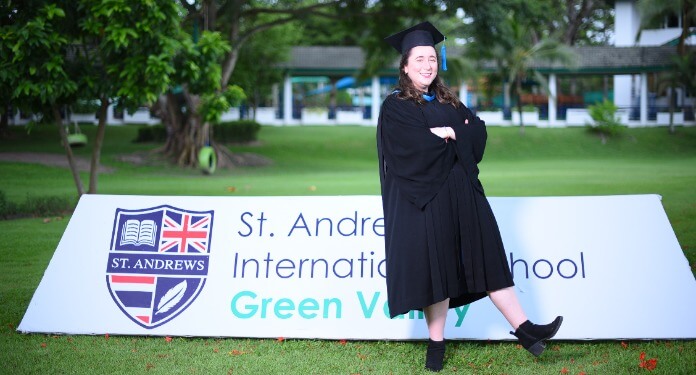A question that we are often asked by parents is, “what is the difference between the IB Diploma and A Levels?” The second question is usually, “which do we think is better?”
Both educational systems have their merits and are effective ways for a student to attain university entry. There is no doubt, however, that the more well-rounded and academically challenging IB Diploma Programme prepares students better for the challenges of not only being accepted into university, but more importantly, being successful whilst at university.
Below is a comparison of the major differences between the programme:
IB DP
- Six subjects studied: 3 x HL, 3 x SL studied in Year 12 and Year 13
- Exams at the end of Year 13
- Theory of Knowledge, Extended Essay and Creativity, Activity and Service (CAS)
- A broader programme that develops the whole person, not just the academic side of the student.
A Levels
- Usually 4 subjects studied in year 12 and 3 subjects studied in year 13
- Exams at the end of year 12 and at the end of year 13
- No Theory of Knowledge, Extended Essay or CAS
- A more narrow programme where students study less subjects to a slightly greater depth than in IB.
The grading system used for IB Diploma and A Levels is also different
IB students achieve grades of 1 – 7. The maximum score for an IB student is 45 points.
A Level students achieve grades of A* – E.
Most A Level students study 3 subjects in Year 13 so the maximum score is A*A*A*
According to the UCAS tariff:
- 45 points is the equivalent of 5 grade A* at A Level
- 40 points is the equivalent of 4 grade A* at A Level and
- 35 points is equivalent to 2 grade A* at A Level and 1 grade A.
What do Universities look for?
When deciding to study either the IB Diploma or A Levels it is also very important to consider what universities are looking for, especially as they are looking for more than just exam results.
Exam results are very important when applying to university, however they are not the only thing. Universities also want to know what additional things that a student has accomplished. The IB PYP and Diploma programmes are dedicated to developing all aspects of the students. At St Andrews, we provide a wide range of additional opportunities for our students which may not be as available in A Level schools:
These include:
- Student Leadership opportunities
- Community Service
- Music
- Drama
- Exceptional Learners
- Sport
The below tables describe how each course prepares students in different areas, according to University Advisors:
| A-levels | IB | |
| Encouraging independent inquiry | 49 per cent | 94 per cent |
| Developing in-depth subject expertise | 94 per cent | 56 per cent |
| Developing workplace skills | 2 per cent | 67 per cent |
| Developing ability to cope with pressure | 62 per cent | 66 per cent |
| Nurturing an open mind | 24 per cent | 93 per cent |
| Developing self-management skills | 47 per cent | 91 per cent |
| Encouraging a global outlook | 7 per cent | 97 per cent |
| Nurturing communication skills | 37 per cent | 44 per cent |
| Encouraging creativity | 15 per cent | 37 per cent |
| Developing intercultural skills | 8 per cent | 70 per cent |
| Instilling a positive approach to risk taking | 4 per cent | 24 per cent |
| Propensity to complete their degree | 78 per cent | 83 per cent |
| Interest to study to MA or PhD level | 44 per cent | 54 per cent |






